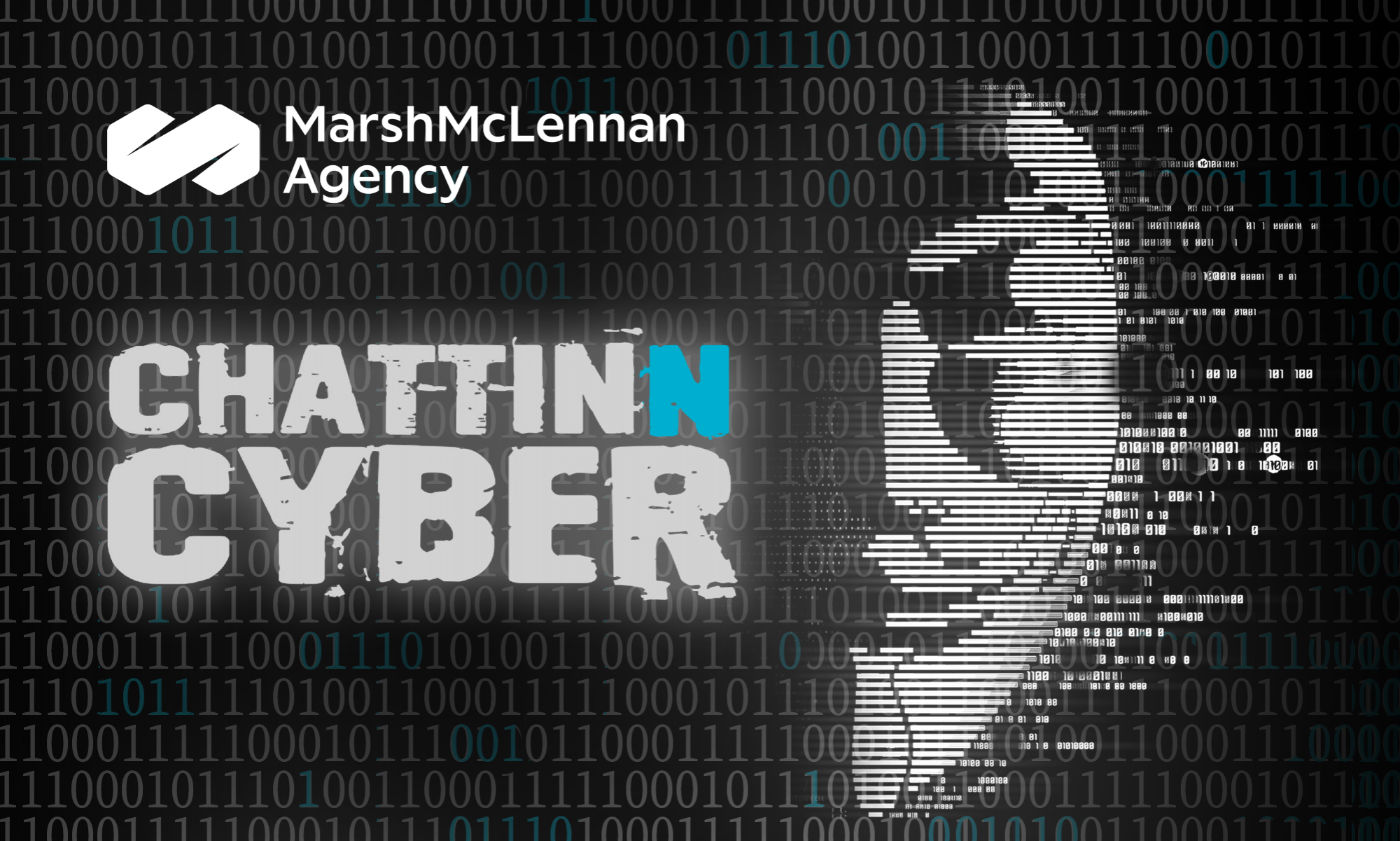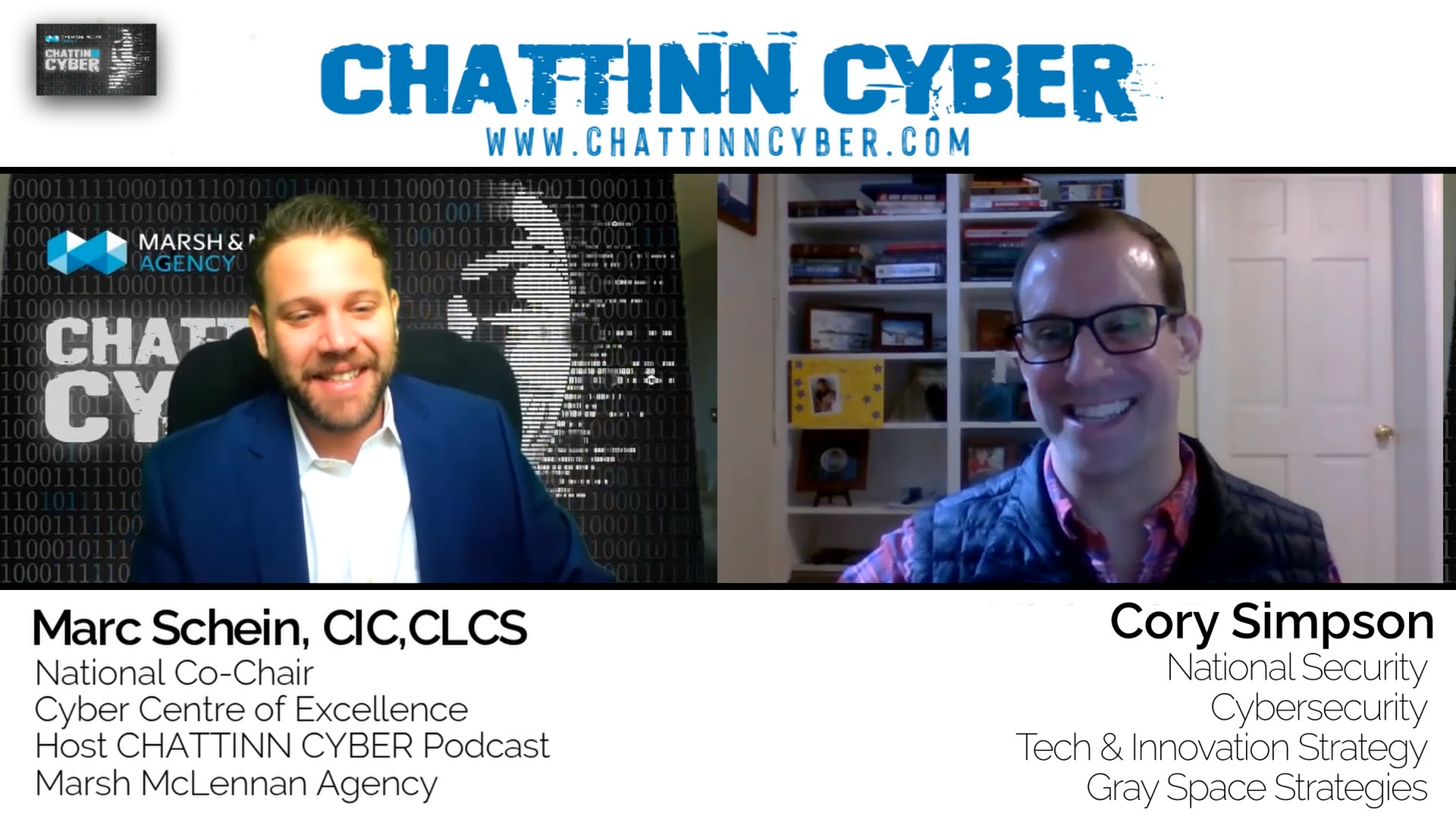Podcast: Play in new window | Download (Duration: 17:08 — 23.5MB)
Subscribe: RSS
In this episode of CHATTINN CYBER, Marc Schein interviews Cory Simpson, a legal advisor, adjunct professor, national security expert, and public policy pioneer. Cory has over two decades of experience advising the most elite organizations in the American military, Congress and Fortune 100 companies on cybersecurity, counterterrorism, emerging technologies and geopolitical risk. He discusses with Marc the state of cybersecurity pre and post-Russian invasion of Ukraine and how to prepare for any risks that might arise in the near future.
The cybersecurity environment pre-invasion was described as VUCA—Volatile, Uncertain, Complex, and Ambiguous. It existed in a context where our political or economic internationalist security spaces were converging and was insecure in its standing.
The illegal invasion of Ukraine is causing economic warfare, and Cory predicts that financial institutions will be targeted robustly; hence, cybersecurity would have to be strengthened in such organizations. But he also adds that large-scale systemic losses might not be observed.
As of the present, Russia appears to be in a problematic situation domestically in terms of enduring starvation and facing higher living costs. A large reason why Ukraine is more transparent about the situation in its country than Russia is because of Russia’s war crimes on the former. They’ve seen to have besieged cities, surrounded them with artillery and armor, cut off all supplies, and then indiscriminately bombed them until the people were dead. The media in Ukraine is taking deadly risks to get news and updates to the rest of the world.
Towards the close of the episode, Cory advises organizations to be prepared to be agile in their plans because they’ll have to adapt to a lot of changes that will happen in the coming years.
For more, tune in to today’s episode!
Highlights:
“If you want to be effective, for the IT/OT, it requires knowledge… physical knowledge of the facility, and that relationship between the IT and the OT, it is hard to do, to get that physical knowledge in the United States, it is probably easier to do in Eastern Europe, where it is known that more Russian actors are doing human intelligence on the ground.”
“I think some of the access and placement of the Intel entities will probably be leveraged in the days and months ahead to inflict harm, but I don’t know how much more replacement access they can they can get once they’ve burned that, because I think they’re just going to be so overwhelmed with other issues.”
“I think we all need to be prepared to be agile in our organizations and in our plans, because I do think we’re going to be asked to adapt to a lot in the environment.”
Time-Stamps:
[01:00] – Russia’s invasion of Ukraine and the associated geopolitical and cyber risks [07:52] – How likely are we to witness a large-scale systemic type of loss due to cyber attack?
[11:23] – Russia and Ukraine’s stance on sharing their message with the rest of the world
[15:03] – Get in touch with Cory
Connect with Cory:
Website: linkedin.com/in/cory-s-simpson

